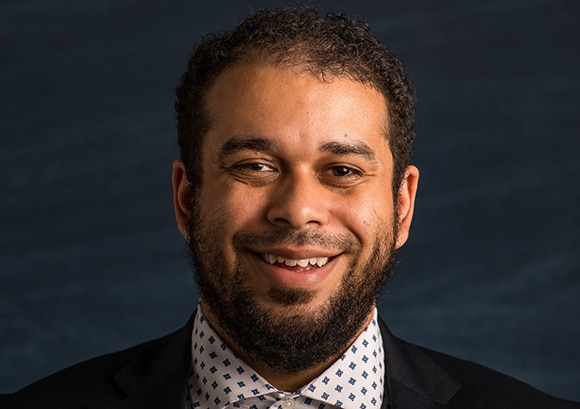In Washington, everyone – regardless of where they’re from, who they love, or what they’re paid – should be able to take care of themselves and their loved ones, live a life of economic dignity, and have opportunities for joy and rest. However, this vision is out of reach for many Washingtonians. Today, 28% of people in Washington struggle to make ends meet. That is why lawmakers must take action this legislative session to make this economic vision a reality.
Washington operates on a biennial budget cycle – where lawmakers pass budgets in odd-numbered years that span two years. However, budgets require more regular updates to respond to the economy, environmental changes, and community needs. As a result, during even-numbered years, the governor and legislators develop a supplemental budget. The 2024 supplemental budget is an opportunity for legislators to create an economy that works for everyone.
In December, Governor Inslee released his proposed supplemental budget, focusing on increased funding for education, behavioral health resources, housing, and addressing the opioid crisis. The supplemental budget proposal totals $71.76 billion – with over 40% of the budget devoted to K-12 education – marking a $1.962 billion increase in the state’s budget through 2025. This increase reflects higher-than-anticipated revenues, including nearly $900 million from the new capital gains tax on the wealthiest Washingtonians. Despite the budgetary increase, the governor’s proposal fails to include funding for several programs that would support the essential needs of individuals and families across Washington who are struggling to make ends meet.
Here’s what the supplemental budget proposal means for the Washington State Budget and Policy Center’s legislative priorities:
Despite modest funding, the governor missed the opportunity to be bold with cash supports
Families need more money to afford daily life expenses, so we are disappointed that the governor did not include funding for a guaranteed basic income (GBI) pilot, an expansion to the Working Families Tax Credit (WFTC), or a baby bonds program. A GBI pilot would provide monthly cash payments without conditions or restrictions, so people can pay for basic expenses with dignity and autonomy. A WFTC expansion would ensure that working seniors and young adults without qualifying children can receive the credit. And a baby bonds program, called the Washington Future Fund, would set aside money for babies from low-income families that could be withdrawn when they reach adulthood. These important policies would provide immediate financial relief and long-term wealth-building opportunities for thousands of families.
However, some policies in the governor’s proposed budget related to direct cash are worth highlighting. It includes:
- $2 million to expand outreach for the Working Families Tax Credit (WFTC) program so that everyone eligible for this program, which puts up to $1,200 back into working people’s pockets, can learn about and access the credit.
- $5.09 million to extend the 60-month time limit on the Temporary Assistance for Needy Families (TANF) program, which would help over 400 households per month to meet their basic needs.
- $150 million for a one-time $200 utility credit to low- and moderate-income households, funded by collections from the Climate Commitment Act (CCA). This program is intended to help families offset increases in the cost of living and is expected to reach 750,000 households.
Investments in immigrant well-being are a good start
Immigrants and low-income families are often front-line communities facing the first impacts of climate change. We are pleased to see Governor Inslee’s continued prioritization of combatting the climate crisis with his proposed supplemental budget inclusion of $7 million from the Climate Commitment Act that would establish a Navigator program and $10 million to fund the Clean Energy Ambassador program. These programs would fund trusted community messengers to help immigrant and overburdened homeowners secure affordable energy-efficient alternatives, protect their homes from extreme climates, and create a healthy environment to raise their families.
The governor has also taken a step toward implementing a Medicaid-like program for undocumented immigrants by including $5.55 million to the Washington State Health Care Authority and $229,000 to the Department of Social and Health Services to support the program. Although this administrative funding is critical to providing quality health care to immigrants, there was no further programmatic funding necessary to provide health insurance coverage to the tens of thousands of undocumented immigrants who still lack access to affordable, quality health care.
Disappointingly, there was no funding to create and implement an Unemployment Insurance program for undocumented workers who are currently ineligible for Unemployment Insurance benefits. Undocumented workers who serve our community and contribute to state taxes should have access to a safety net when they are laid off due to no fault of their own.
Lawmakers must include programmatic funding for the Medicaid-like program and the Unemployment Insurance program for undocumented workers in the final budget to ensure our budget reflects a Washington state that provides everyone access to public benefits, regardless of immigration status.
Budget doesn’t support formerly incarcerated people who are saddled with debt from fines and fees
The governor’s supplemental budget proposal did not include any funding related to legal financial obligations (LFOs), which are fines, fees, court costs, and restitution that are assessed when a person is sentenced for a conviction. People with little or no ability to pay these fines and fees get trapped in a cycle of debt that can lead to extreme financial hardship.
Senate Bill 5974 and its companion House Bill 2251 would make technical changes to LFO debt relief legislation passed in 2023. This is an essential fix for the final supplemental budget bill to provide expansive youth LFO debt relief to thousands of people in Washington. But much more work needs to be done to abolish harmful fines and fees debt.
Governor renews investment in progressive revenue
The governor’s proposed budget included increased resources for Washington’s progressive revenue programs. After higher-than-anticipated revenue returns in the program’s first year, the budget proposal allocates over $1.5 million for capital gains tax corrections and enforcement. The success of the capital gains tax has allowed for stronger state investments in key areas, namely education and school construction. While ensuring the capital gains tax remains strong, the legislature can go further on revenue this legislative session.
The legislature should enact a Real Estate Transfer Tax that raises the tax paid on properties valued over $3.025 million at the time of sale to 4% to provide a reliable funding stream for affordable housing. Additionally, lawmakers should enact a wealth tax that would introduce a tax on financial assets, like stocks and bonds, for multimillionaires and billionaires with over $250 million in financial assets. Together, these proposals would raise over $3 billion in revenue annually.
We call on lawmakers to invest in an economy that works for everyone
State legislators can and should craft their own supplemental budget proposal that does more for the people and communities across the state struggling to meet basic needs. Lawmakers can start by passing a statewide guaranteed basic income pilot program, expanding the state unemployment insurance system to include undocumented workers, and expanding the Working Families Tax Credit.



